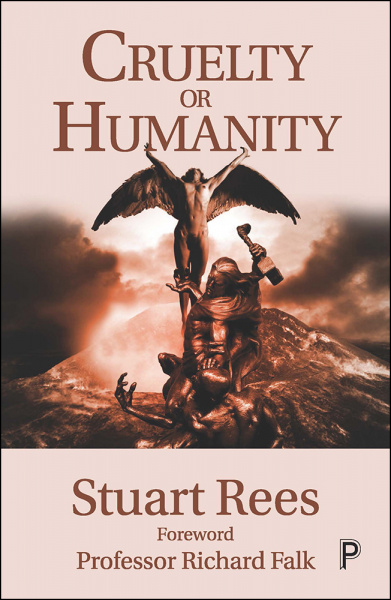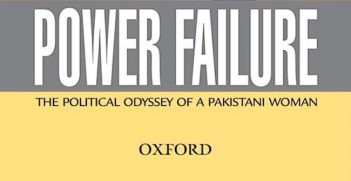Book Review: Cruelty or Humanity: Challenges, Opportunities, Responsibilities

At their very foundation, human rights violations are examples of the cruelty of mankind. Through poetic and real-world analysis, Stuart Rees reveals the paradoxical interplay between humanity and its undeniable propensity to be cruel.
It is no secret that human rights violations remain a pervasive affliction across the globe today, and there is no shortage of work grappling with the where, what, and why. Especially within academic contexts, though, human rights violations are much less commonly called for what they are: cruelty. Cruelty can be seen in military commanders, condemning countless victims to death; politicians, relentlessly stripping away what social protections remain in the name of economic efficiency; and civilians, all too easily roused to hatred and violence in the name of religious or national fervour. These simple truths are all too often lost in the theorising of scholars, or in the strategising of political actors.
If it’s true that naming a problem is the first step towards solving it, Stuart Rees’ new book Cruelty or Humanity: Challenges, Opportunities, Responsibilities does an immense service in naming the cruelty that underpins human rights violations. With his extensive background in campaigning for peace and justice, Rees is well-positioned to grapple with the urgent question of why such cruelty is so pervasive, and what can be done about it. The resulting book offers a relentless and clear-eyed survey of the depths to which humans sink, without losing faith in our capacity for solidarity and care.
Cruelty or Humanity works best taken as a documentation of the breadth and depth of state-sanctioned human rights violations in the decades following WWII. From the Colombian Civil War to Duterte’s extra-judicial killings, from the invasion of Iraq to the occupation of Palestine, from the genocidal treatment of the Rohingya in Myanmar to the rise of Hindu nationalism in India, Rees’ far-ranging text does not shy away from describing the damage inflicted by state actors, identifying those responsible, and naming what they do as cruelty.
Rees makes very clear, though, that such cruelty is not the province of any particular state or region, and that callous disregard for the lives of the most vulnerable is to be found just as easily close to home. Australia’s policies, especially towards asylum seekers and Indigenous peoples, are placed alongside more readily acknowledged instances of human rights violations, making especially vivid the gap between Australia’s self-understanding as the land of the fair go, and the reality of oppression and violence inflicted in its name.
Since the book is structured thematically, rather than chronologically or geographically, certain case studies recur as common refrains throughout the text. This has the salutary effect of always pulling the reader back from abstract theorising, but it does make for somewhat grim reading. I found myself hoping that having worked through the opening chapters on cruelty, there would be some respite once Rees’ attention turned to humanity. Even here, however, the refrains of genocide, disappearances, and torture remained, functioning as a reminder that the desire to seek solace in our capacity for humanity must not lead to closing our eyes to the horrors so many in the world continue to face.
While it is highly effectively in compelling the reader to bear witness to state-sanctioned cruelty, Cruelty or Humanity may prove less satisfying for those looking for solutions. Rees does not put much stock in the legal system, whether domestic or international, to provide protection against state-based cruelty. As a result, the reader won’t find much discussion here of the role of treaty bodies, peacekeeping, or other compliance mechanisms that might figure in a more IR-centred analysis of human rights violations. Instead, Rees invites us to see the solution to state-based cruelty as lying in the interpersonal: in how we choose to engage with one another across difference; in taking on a personal commitment to non-violence; and in a steadfast refusal to accept the excuses, prevarications, and outright lies that are told by those in charge. While no doubt important, the book’s focus on these interpersonal strategies rather than systemic change left the discussion of solutions feeling somewhat incomplete.
I was also left wanting more from the chapter seeking to explain the causes of cruelty. Rees identifies three such interrelated causes: the banality of evil, bureaucratic inertia, and individual sadism. While he makes a compelling case that each of these factors has contributed to human rights violations throughout history, significant space was devoted to describing those violations, leaving less emphasis on unpacking the nature of each cause. I think the book would have benefited from a more rigorous analysis of what phenomena such as the banality of evil amount to, how they are sustained, and how they can be countered.
A highly original aspect of the book, which sets it apart from other engagements with the topic of human rights violations, is the integration of poetry into the text. Rees makes clear that poets are often better equipped to understand the world around us, in its horror as well as its beauty, and he urges us throughout his book to take heed of their wise words. While I agree with Rees on the role poetry can play (nothing quite captures the possibility of fleeting moments of humanity amidst the devastation of oppression like Ilya Kaminsky’s recent work Deaf Republic), I think it perhaps could have better served that purpose if each poem had been given a bit more space to breathe in the text. In excerpting the most directly relevant lines or stanzas to support his claims, rather than allowing each poem to speak as a whole, I felt their nuance and broader meaning was sometimes lost.
The abiding impression left by Cruelty or Humanity is of a work motivated by deep compassion. Rees never loses sight of the human element of human rights violations, nor does he ever seem numbed to the pain he so carefully documents. The book stands as a testament to the humanity he urges us to embrace.
This is a review of Stuart Rees, Cruelty or Humanity: Challenges, Opportunities, Responsibilities (Policy Press, 2020). ISBN: 978-1447356981.
This article is published under a Creative Commons Licence and may be republished with attribution.





